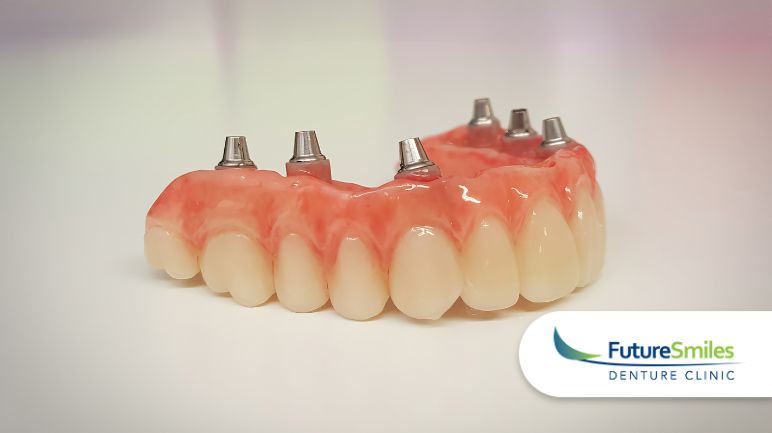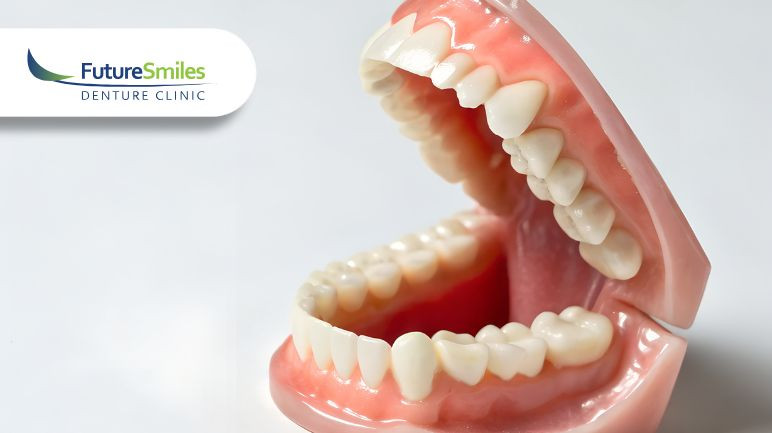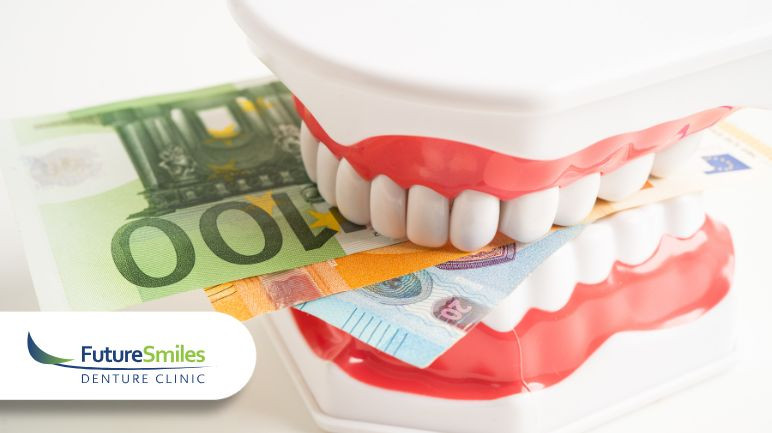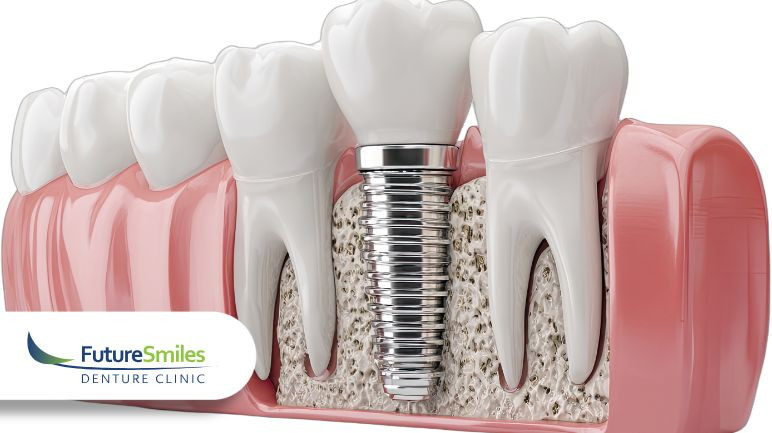At Future Smiles Denture Clinic, we understand the profound impact a healthy, beautiful smile can have on your confidence and quality of life. For many individuals, dentures are a crucial part of maintaining that smile. However, there are significant differences between traditional dentures and denture implants that can influence your decision when it comes to restoring your teeth. In this blog, we'll explore these differences, helping you make an informed choice.
Traditional vs. Implant
Dentures have been a reliable solution for tooth loss for centuries, providing a way for individuals to regain their ability to eat, speak, and smile with confidence. Over time, advancements in dental technology have introduced denture implants, offering an alternative that closely mimics the function and feel of natural teeth. Understanding the distinctions between traditional dentures and denture implants can guide you toward the best option for your needs.
What are Traditional Dentures?
Traditional dentures are removable appliances designed to replace missing teeth. They consist of a gum-colored acrylic base that fits over your gums, with artificial teeth attached to this base. Depending on the extent of tooth loss, traditional dentures can be full (replacing all teeth in the upper or lower jaw) or partial (replacing a few missing teeth while retaining some natural teeth).
The Benefits of Traditional Dentures
Traditional dentures have several advantages that make them a popular choice for many patients:
-
Cost-Effective: Traditional dentures are generally more affordable than denture implants, making them an accessible option for many people.
-
Non-Invasive Procedure: The process of getting traditional dentures is non-invasive, requiring no surgery. Impressions of your mouth are taken, and your dentures are custom-made to fit.
-
Adjustable: Traditional dentures can be adjusted or relined to ensure a comfortable fit as your mouth changes over time.
Drawbacks of Traditional Dentures
While traditional dentures offer many benefits, they also come with some drawbacks:
-
Stability Issues: Traditional dentures can sometimes slip or shift in your mouth, especially when eating or speaking, which can cause discomfort or embarrassment.
-
Bone Loss: Without the stimulation provided by natural teeth or implants, the jawbone can gradually shrink over time, altering the fit of your dentures and affecting your facial structure.
-
Maintenance: Traditional dentures require regular cleaning and maintenance. They need to be removed and cleaned daily to prevent infections and ensure oral hygiene.
What are Denture Implants?
Denture implants, also known as implant-supported dentures, involve a more modern approach. They consist of dentures that are securely anchored to dental implants, which are titanium posts surgically inserted into the jawbone. These implants act as artificial tooth roots, providing a stable foundation for the dentures.
The Benefits of Denture Implants
Denture implants offer numerous advantages that address some of the limitations of traditional dentures:
-
Enhanced Stability: Denture implants are securely anchored in place, eliminating the risk of slipping or shifting. This stability allows for greater confidence while eating, speaking, and smiling.
-
Preservation of Jawbone: The implants stimulate the jawbone, helping to prevent bone loss and maintaining the natural shape of your face.
-
Improved Function: Denture implants function more like natural teeth, providing better chewing efficiency and overall comfort.
Drawbacks of Denture Implants
Despite their many benefits, denture implants are not without considerations:
-
Higher Cost: Denture implants are generally more expensive than traditional dentures due to the surgical procedure and materials involved.
-
Invasive Procedure: The process of getting denture implants requires surgery and a longer healing period. Patients need to be in good overall health and have sufficient bone density to support the implants.
-
Extended Treatment Time: The entire process, from implant placement to final denture fitting, can take several months, requiring patience and commitment from the patient.
Making the Right Choice for Your Smile
Choosing between traditional dentures and denture implants is a significant decision that depends on various factors, including your budget, oral health, and personal preferences. At Future Smiles Calgary, we are dedicated to helping you make the best choice for your unique situation. Our experienced team will provide you with the information and support you need to decide on the solution that will restore your smile and improve your quality of life.
FAQ
Q: What are the drawbacks of traditional dentures?
A: Traditional dentures can sometimes slip or shift in your mouth, may lead to jawbone loss over time, and require regular cleaning and maintenance.
Q: Do denture implants help prevent bone loss?
A: Yes, denture implants stimulate the jawbone, helping to prevent bone loss and maintaining the natural shape of your face.
Q: How do I decide which option is best for me?
A: Choosing between traditional dentures and denture implants depends on various factors, including your budget, oral health, and personal preferences. Call or book your free consultation with Future Smiles Calgary so you can make the best decision for your unique situation.







